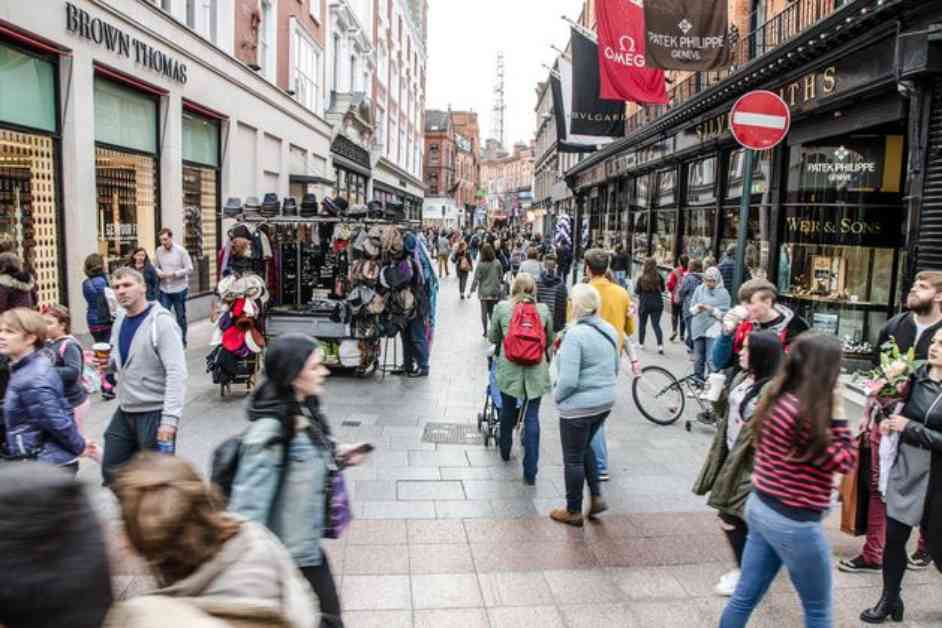Dublin Chamber of Commerce Warns Dubliners of Impending Water Shortage Crisis
Dublin Chamber of Commerce has issued a dire warning to Dubliners, stating that the city could be facing a severe water shortage within the next ten years if urgent action is not taken. The lack of investment in essential infrastructure projects poses a significant risk to Dublin’s growth and sustainability, according to the business group.
The lobbying group, which represents 1,000 companies and is the largest chamber of commerce in Ireland, is calling on the Government to prioritize the delivery of major infrastructure projects in the upcoming Budget. They are specifically advocating for increased investment in public transport, water infrastructure, energy, and housing to address the pressing issues facing the Greater Dublin Area (GDA).
Infrastructure Projects in Peril
Dublin Chamber has highlighted ongoing delays in critical infrastructure projects such as Metro, Dart+, BusConnects, Uisce Éireann’s Eastern and Midlands Water Supply Project, and the Greater Dublin Drainage Scheme. These delays, coupled with a growing population and aging infrastructure, are putting immense pressure on Dublin’s resources, particularly its water supply.
The chamber estimates that the GDA will be “without water within a decade” if immediate action is not taken to address the increasing demand for water. Dublin’s current water requirements are predominantly met by the River Liffey, which supplies 85% of the city’s water. However, with the population surpassing all expectations, Dublin’s reliance on the Liffey for its water supply poses a significant risk in the event of any disruptions or shortages.
Dublin Chamber’s Director of Public and International Affairs, Aebhric McGibney, emphasized the urgency of the situation, stating, “Dublin has a risk that if any of those reservoirs face difficulty, there will be a water shortage, and then with the continued growth in population, Dublin will not have enough water within the next 10 years.”
Call for Immediate Action
In response to the looming water crisis, Dublin Chamber is urging the Government to provide Uisce Éireann with the necessary funding to commence crucial projects by January of next year. The goal is to have both the additional water supply and drainage schemes completed by 2030 to ensure the city’s water security for the future.
The chamber also stressed the need for a revision of the Housing for All target, advocating for a minimum of 53,000 new housing units to be built annually. Half of these units should be developed in the Greater Dublin Area, where approximately one million jobs are located. McGibney highlighted the challenges faced by individuals who are forced to live far from their workplaces due to the high cost of housing in Dublin.
Dublin Chamber’s Chief Executive, Mary Rose Burke, called for a review of the Residential Zone Land Tax to facilitate the availability of zoned and serviced land for housing development. She emphasized the importance of providing key infrastructure such as water, wastewater, public transport, energy, and childcare to support the timely delivery of much-needed housing projects.
Addressing Childcare and Enterprise Tax
In addition to advocating for improvements in housing and water infrastructure, Dublin Chamber is also calling for changes in childcare subsidies and enterprise tax schemes. They are urging the Government to increase the universal subsidy under the National Childcare Scheme from €2.14 to €2.70 per hour to make childcare more affordable for families and boost the capacity of childcare facilities.
Furthermore, the organization is seeking a simplification of the enterprise tax scheme in Budget 2025. Dublin Chamber is specifically pushing for a reduction in Capital Gains Tax for investments in unquoted actively trading SMEs from 33% to 20% to encourage more investment in Irish small businesses and stimulate economic growth.
In conclusion, Dublin Chamber’s warnings about the impending water shortage crisis and the urgent need for investment in critical infrastructure projects serve as a wake-up call for policymakers and the public alike. The future sustainability and growth of Dublin hinge on decisive action being taken now to address these pressing issues and ensure the city’s resilience for generations to come.












